Published Jul 7, 2019
Getting into it With the Grand Nagus, Wallace Shawn
We talk to one of our favorite guest stars about his path to 'Trek,' what it's like inside that makeup, and more.
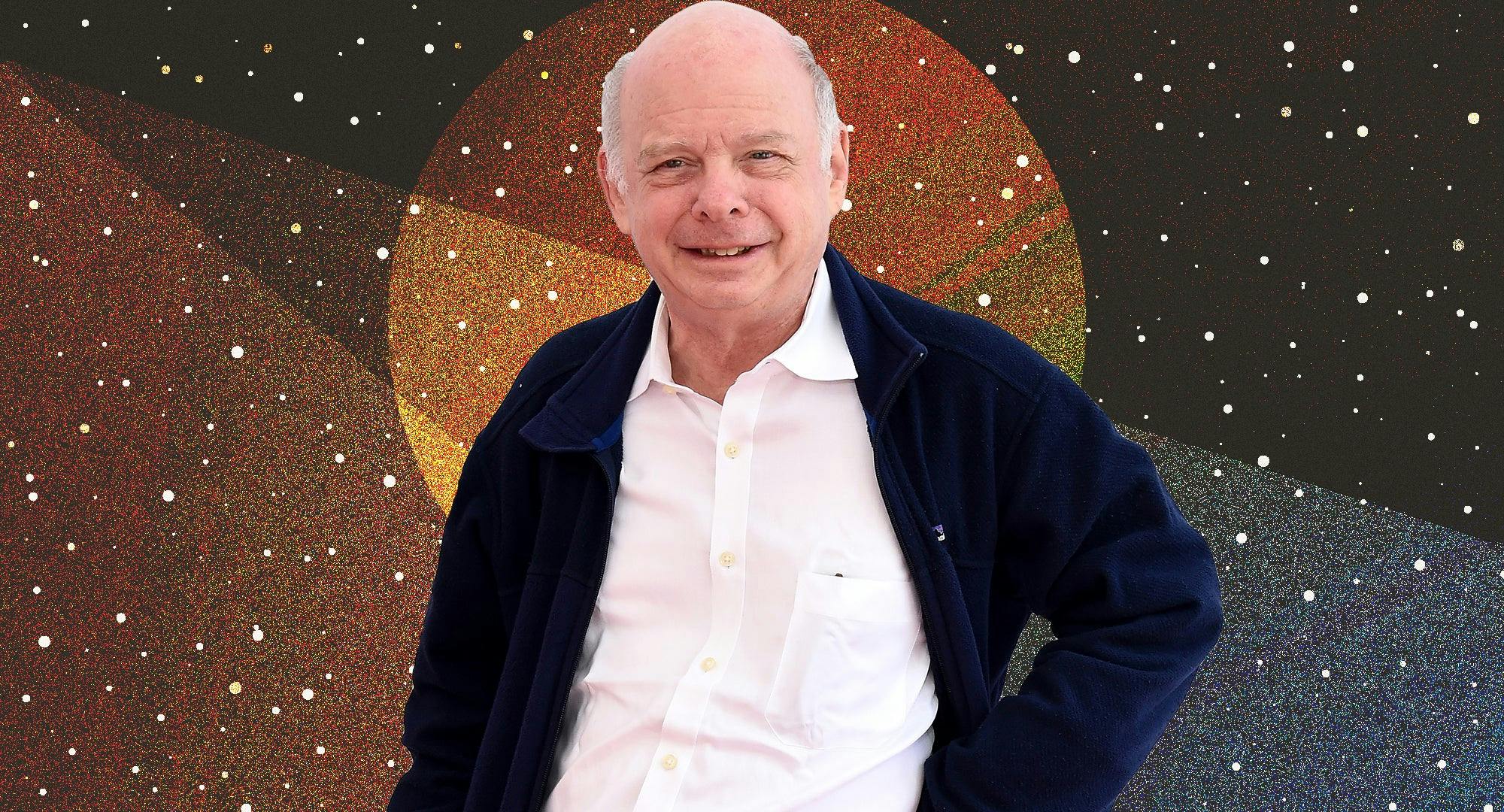
StarTrek.com
The Star Trek: Deep Space Nine episode “The Nagus” gave fans their first taste of playwright-author-producer-actor Wallace Shawn as Grand Nagus Zek. Shawn made the wily Ferengi leader his own over seven appearances on DS9 — that's one each season. The role added to his impressive list of previous and future memorable characters, including Father Abruzzi (Heaven Help Us), Vizzini (The Princess Bride), Mr. Hall (Clueless), Rex (the Toy Story franchise) and Cyrus Rose (The CW's Gossip Girl).
StarTrek.com at long last caught up with the amiable Shawn, who recounted his Trek experiences, detailed the surprising paths his career has taken, and filled us in on his current projects.
How surprised were you to be asked to do DS9?
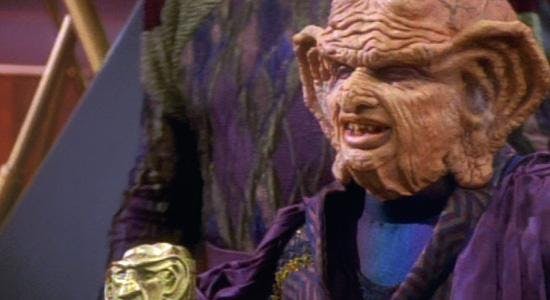
I was totally shocked because I've never owned a TV, so I was not really an expert on the show. On the other hand, having spent a lot of time in hotels, I’d sit flipping through channels and I always landed on Star Trek and thought "Oh, this is the one that looks so attractive visually." That would be The Next Generation. I always thought, “Wow, the cinematography is so great and it's so interesting-looking, with these interesting-looking people and creatures.” So, when I was asked to do DS9, I was thrilled. I loved the idea.
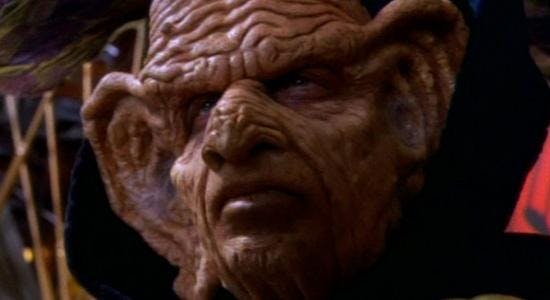
The character was such a Ferengi, cunning and funny, but also wise. How much fun did you have playing him?
To be in that world and to be in that makeup really liberated me in a way that I never experienced before — or since. I felt completely free, so it was a joyful experience. But it was physically very, very arduous, and I couldn't have done it on a regular basis. Once a year, which is what I did, was basically perfect for me. But to be trapped inside that head for at least 12 hours, not counting three hours to put the makeup on and an hour to take it off, was a little bit disturbing and uncomfortable and exhausting. And if you had to scratch your forehead, you couldn't.
Was that your decision to only do it once a year because of the makeup? Did they want you more often? Or was it their idea to have you on once a year?
I think that that was just the choice of the writers and producers, and it worked out very nicely. That was just how often they wanted me.
How did you enjoy working with your fellow Ferengi, Armin Shimerman, Max Grodenchik, Tiny Ron, Cecily Adams and Aron Eisenberg?
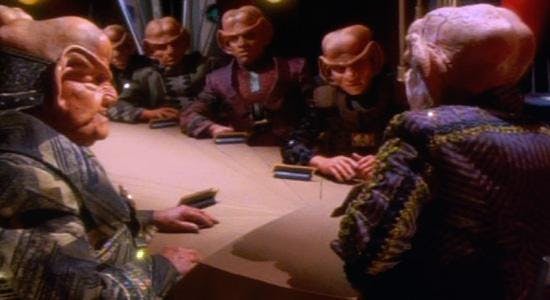
I loved all of [them]. I don't know if I ever saw Tiny Ron outside of the makeup. Cecily was enchanting and lovely. Armin, I've seen subsequently and I did fairly soon, I think, see him out of makeup. I guess, ultimately, I saw Max out of makeup, too. But mostly I knew these people as Ferengi, really. Max and Armin, most of our relationship was Ferengi to Ferengi, really, with only these strange glimpses of each other out of makeup. So, the reality seemed in some ways less real than the made-up versions.
You appeared in seven episodes. Was there an episode, a scene, you were most satisfied with?
The first episode was the one where the character was invented. The fake death was an amazing plot twist. The writers invented the character and, basically, I had all of three seconds to figure out how to interpret him based on the script. And the makeup, going through that the first time, that was an unforgettable moment. I also remember that, maybe even on the first day, an executive from upstairs — I don't know what sort of executive he even was — came down and took me aside and said, "Now, you do understand, this is a serious program? Star Trek is not a comedy."
I’m not quoting him exactly because I don't remember his exact words, but in effect he was saying I was being too funny or I was clowning. I was not; it wasn't appropriate for the show. Well, I wasn't an expert on the show because, as I said, I don't have a TV and I never did have one. I really never had seen a complete episode of the show. So, I was a little nonplussed. I told the director, “Wow, a guy from upstairs told me this and I don't know what to do now.” He said, “No, I love what you're doing. So, keep on doing it.” That was fortunate because I really wouldn't have known what to do.
Considering that your seven episodes were spread over seven seasons, the Grand Nagus really had a full arc, even initiating reforms.
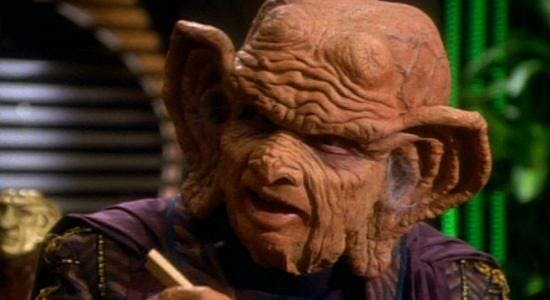
Oh, absolutely. I knew that the writers were taking particular enjoyment out of my character when they presented me with a companion — a wonderful female Ferengi. That was amazing. I knew they were taking my character seriously and giving me great, wonderful stuff to do in every episode. There were no throwaway episodes for me, where I was just there, which sometimes can happen on television. Each episode that I was in I had something fascinating to do.
Your career spans 50 years. When you started out, what did you aspire to?
I began in my 20s as a writer, and at least in my own personal belief, I still am, even though only a small cult of people appreciate my writing. Most people have never heard of it and, if they have, they aren't particularly attracted to it. But I’ve been a writer for 50 years and continue to write.
There was never a time when I thought I would be an actor. It happened before I thought of it. A friend put me in a play and I kept at it because I’d not found a way to support myself, because my plays were odd. It was clear they couldn't support me even in immodest living, much less a bourgeois living. So, when I was offered a part in the play, despite the fact that I was not an actor, I said sure. The play was quite successful and I was, you might say, discovered by Juliet Taylor.
When people recognize you on the street, do they want to talk about your plays, your political writings, or is it usually Clueless, Star Trek, Toy Story and The Princess Bride?
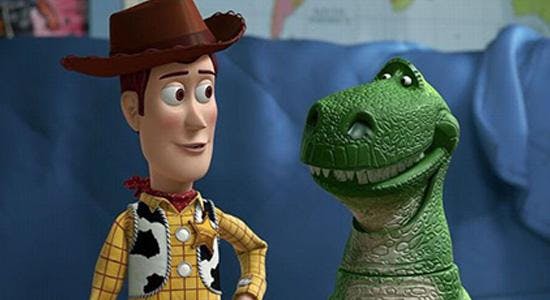
Well, a lot of people do speak to me on the street, usually in a friendly way. Sometimes I don't know quite why the person is talking to me at first because I do have the different parts of my life. So, I don't sometimes even know whether someone is complimenting me for an angry political polemic that I've written or for my strange plays, or for being a comical blackjack dealer in Vegas Vacation.
So, you’re saying they don’t come up to you and specifically comment, "Hey, aren't you the guy from…" or "I loved you in…"? Or, “I loved this play or that article?”
Often, they don't.
Really?
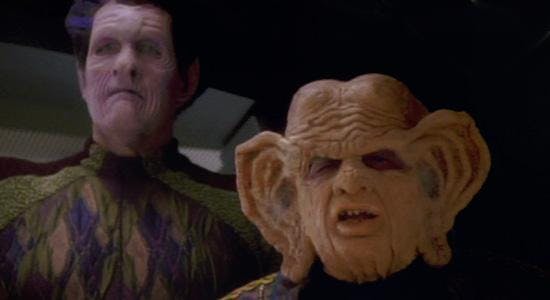
Sometimes, and sometimes people think that you are someone who has only done one thing, the thing that they like. So, people have often said to me on the street, "Your film is great," and I don't know what they mean. But the Star Trek fans are a particular group. They're very distinctive as people. There seem to be no evil Star Trek fans. They're a distinctly goodhearted group of people and, in many cases, they are people who have experienced some type of isolation or disadvantage. I’m going to guess that Donald Trump is not a Trekkie. It's an interesting group of people. And, of course, I don't really look like the Grand Nagus physically. I was wearing an incredible amount of makeup, so the people who recognize me from Star Trek really looked closely at that show. Star Trek fans see things again and again, and it’s even easier to do that now because DS9 is on Netflix and there's a whole new crowd of fans.
What are your current projects? Will you be part of Ira Steve Behr’s DS9 documentary, What We Left Behind?
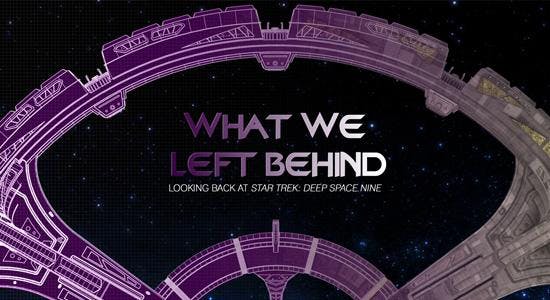
Absolutely. Ira recorded me for that, and it should be very interesting and fun when it comes out. My small, very small book called Night Thoughts is available probably still at your local bookshop, if you have a local bookshop, or on Amazon. It’s kind of a long political essay, political in my own style, you might say. Book Club is coming out, and so is Toy Story 4. I've done a number of TV things. I'm on The Marvelous Mrs. Maisel, She's Gotta Have It, Mozart in the Jungle and Mr. Robot. I don't know, I seem to be doing an awful lot of these shows. I can't explain it. It's great. And I've got nice parts.
This interview, which originally ran in March of 2018, has been edited and condensed.

